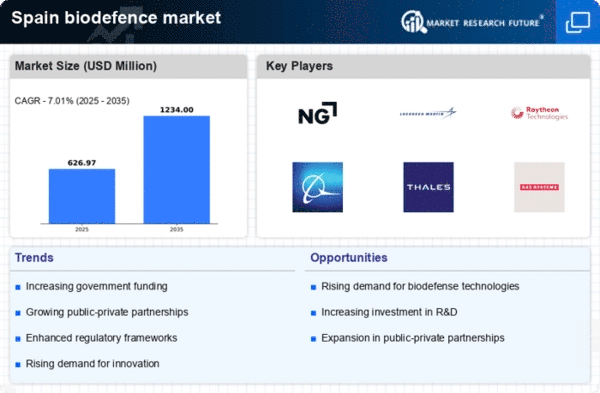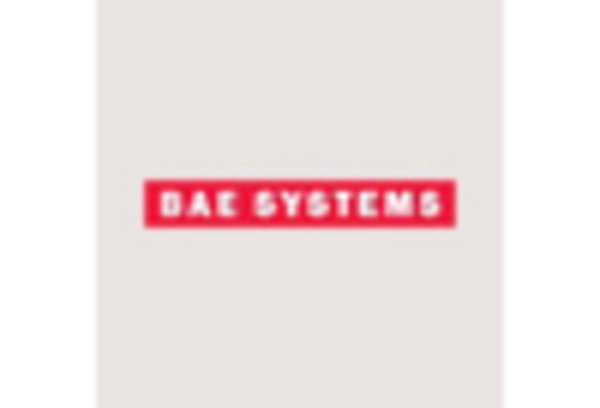Growing Regulatory Frameworks
The evolving regulatory landscape in Spain is a crucial driver for the biodefence market. The government has been implementing stringent regulations to enhance national security and public health. This includes the establishment of guidelines for biodefence technologies and protocols for emergency response. As a result, companies are compelled to invest in compliance measures, which in turn stimulates market growth. The Spanish government allocated approximately €200 million in 2025 for biodefence initiatives, indicating a strong commitment to enhancing national preparedness. This regulatory push not only fosters innovation but also encourages collaboration among stakeholders, thereby strengthening the overall biodefence market in Spain.
Rising Threat of Bioterrorism
The escalating threat of bioterrorism is a significant driver for the biodefence market in Spain. Recent assessments indicate that the risk of biological attacks has increased, prompting the government to prioritize biodefence strategies. In response, Spain has allocated substantial resources to bolster its biodefence capabilities, with an estimated €100 million earmarked for counter-bioterrorism measures in 2025. This heightened focus on security is likely to stimulate demand for advanced biodefence technologies and solutions. As the threat landscape evolves, the biodefence market is expected to expand, driven by the need for robust protective measures against potential biological threats.
International Collaboration and Funding
International partnerships and funding opportunities are emerging as vital drivers for the biodefence market in Spain. Collaborative efforts with European Union agencies and NATO have led to increased financial support for biodefence research and development. In 2025, Spain received €50 million in funding from EU initiatives aimed at enhancing biodefence capabilities. These collaborations not only provide financial resources but also facilitate knowledge exchange and best practices among member states. As Spain continues to engage in international biodefence initiatives, the market is expected to benefit from enhanced innovation and improved response strategies, thereby fostering growth.
Technological Advancements in Biodefence
Technological innovation plays a pivotal role in shaping the biodefence market in Spain. The integration of advanced technologies such as artificial intelligence, machine learning, and biotechnology is enhancing the capabilities of biodefence systems. For instance, the development of rapid detection systems for biological threats is gaining traction, with investments in this area expected to reach €150 million by 2026. These advancements not only improve response times but also increase the accuracy of threat assessments. Consequently, the market is witnessing a surge in demand for cutting-edge biodefence solutions, which is likely to drive growth and competitiveness within the industry.
Increased Public Awareness and Preparedness
Public awareness regarding biological threats has been on the rise in Spain, significantly impacting the biodefence market. Educational campaigns and government initiatives aimed at informing citizens about potential biological risks have led to heightened demand for biodefence products and services. Surveys indicate that approximately 70% of the population is now more conscious of the need for preparedness against biological threats. This shift in public perception is prompting both private and public sectors to invest in biodefence measures, thereby expanding the market. The increased focus on community resilience and preparedness is likely to sustain growth in the biodefence market in the coming years.
















